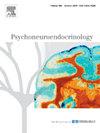皮质醇唤醒反应启动人类认知和情感的统一心理-神经内分泌-发育模型:2025年德克·海尔哈默奖。
IF 3.6
2区 医学
Q2 ENDOCRINOLOGY & METABOLISM
引用次数: 0
摘要
觉醒是每天从睡眠到清醒的转换,重新参与感知、运动和生存预测。这种转变伴随着皮质醇觉醒反应(CAR),这是下丘脑-垂体-肾上腺(HPA)轴活动的标志,是影响人类大脑、情感、认知和健康的敏感神经内分泌标志物。CAR的改变被认为是多种精神疾病的跨诊断危险因素。在这里,我们综合多学科的研究结果,提出了一个统一的心理-神经内分泌-发育(PNED)准备模型,阐明了CAR在优化神经效率和动态资源分配方面的主动作用,以应对预期的认知和情感需求。我们首先回顾了CAR的生理基础及其与认知-情绪功能的关系。随后,我们整合了最近的证据,证明CAR如何策略性地启动海马体-前额叶相互作用来支持记忆和执行控制,杏仁核-前额叶回路用于早期生活经历形成的情绪处理,以及潜在的执行和情绪功能的大规模神经网络动力学。从机制上讲,CAR通过建立神经内分泌活动的紧张状态,通过矿物皮质激素和糖皮质激素受体依赖的神经元兴奋性调节来调动代谢和能量供应,从而发挥时间协调者的作用。这个过程促进了常规记忆印迹和前瞻记忆表征的重新激活,使个体能够预测日常需求和挑战。PNED模型将CAR定义为一种主动而非被动的机制,它与应激敏感介质、刺激/任务驱动的阶段性儿茶酚胺能作用一起工作,从而实现神经资源的灵活分配。这一观点强调了car诱导的大脑准备可能是个体在整个发育过程中对压力的脆弱性和恢复力差异的基础,并将car介导的大脑网络相互作用定位为有希望的干预目标。最后,我们讨论了转化的机会和未来的方向,包括car优化的时间疗法和神经调节策略。总的来说,我们提出的模型为理解CAR在不断变化的环境背景下参与心理、神经内分泌和发育过程提供了一个统一的框架,对精神健康障碍的个性化方法具有潜在的意义。本文章由计算机程序翻译,如有差异,请以英文原文为准。
A unifying psycho-neuroendocrine-developmental model for the cortisol awakening response primes human cognition and emotion: 2025 Dirk Hellhammer award
Awakening is the daily switch from sleep to wakefulness, re-engaging sensing, movement, and prediction for survival. This transition accompanies with the cortisol awakening response (CAR), a hallmark of the hypothalamic-pituitary-adrenal (HPA) axis activity, which serves as a sensitive neuroendocrine marker that influences human brain, emotion, cognition and health. Alterations in CAR are considered as a transdiagnostic risk factor for various psychiatric disorders. Here we synthesize multidisciplinary findings to propose a unifying Psycho-NeuroEndocrine-Developmental (PNED) Preparedness model that elucidates CAR’s proactive role in optimizing neural efficiency and dynamic resource allocation for anticipated cognitive and emotional demands across developmental contexts. We begin by reviewing the physiological bases of CAR and its associations with cognitive-emotional functioning. Subsequently, we integrate recent evidence demonstrating how CAR strategically primes hippocampal-prefrontal interactions to support memory and executive control, amygdala-prefrontal circuitry for emotion processing shaped by early life experiences, and large-scale neural network dynamics underlying executive and emotional functions. Mechanistically, CAR functions as a temporal orchestrator by setting up a tonic state of neuroendocrine activity that mobilizes metabolism and energy supply through mineralocorticoid and glucocorticoid receptor-dependent modulations of neuronal excitability. This process facilitates reactivation of routine memory engrams and prospective memory representations, enabling individuals to anticipate daily demands and challenges. The PNED model conceptualizes CAR as a proactive rather than reactive mechanism that works with stress-sensitive mediators, stimulus/task-driven phasic catecholaminergic actions to enable flexible allocation of neural resources. This perspective highlights CAR-induced brain preparedness that may underlie individual differences in vulnerability and resilience to stress across development, and positions CAR-mediated brain network interactions as promising targets for intervention. Finally, we discuss translational opportunities and future directions, including CAR-optimized chronotherapies and neuromodulation strategies. Collectively, our proposed model offers a unified framework for understanding CAR’s involvement in psychological, neuroendocrine, and developmental processes in ever-changing environmental contexts, with potential implications for personalized approaches to mental health disorders.
求助全文
通过发布文献求助,成功后即可免费获取论文全文。
去求助
来源期刊

Psychoneuroendocrinology
医学-精神病学
CiteScore
7.40
自引率
8.10%
发文量
268
审稿时长
66 days
期刊介绍:
Psychoneuroendocrinology publishes papers dealing with the interrelated disciplines of psychology, neurobiology, endocrinology, immunology, neurology, and psychiatry, with an emphasis on multidisciplinary studies aiming at integrating these disciplines in terms of either basic research or clinical implications. One of the main goals is to understand how a variety of psychobiological factors interact in the expression of the stress response as it relates to the development and/or maintenance of neuropsychiatric illnesses.
 求助内容:
求助内容: 应助结果提醒方式:
应助结果提醒方式:


